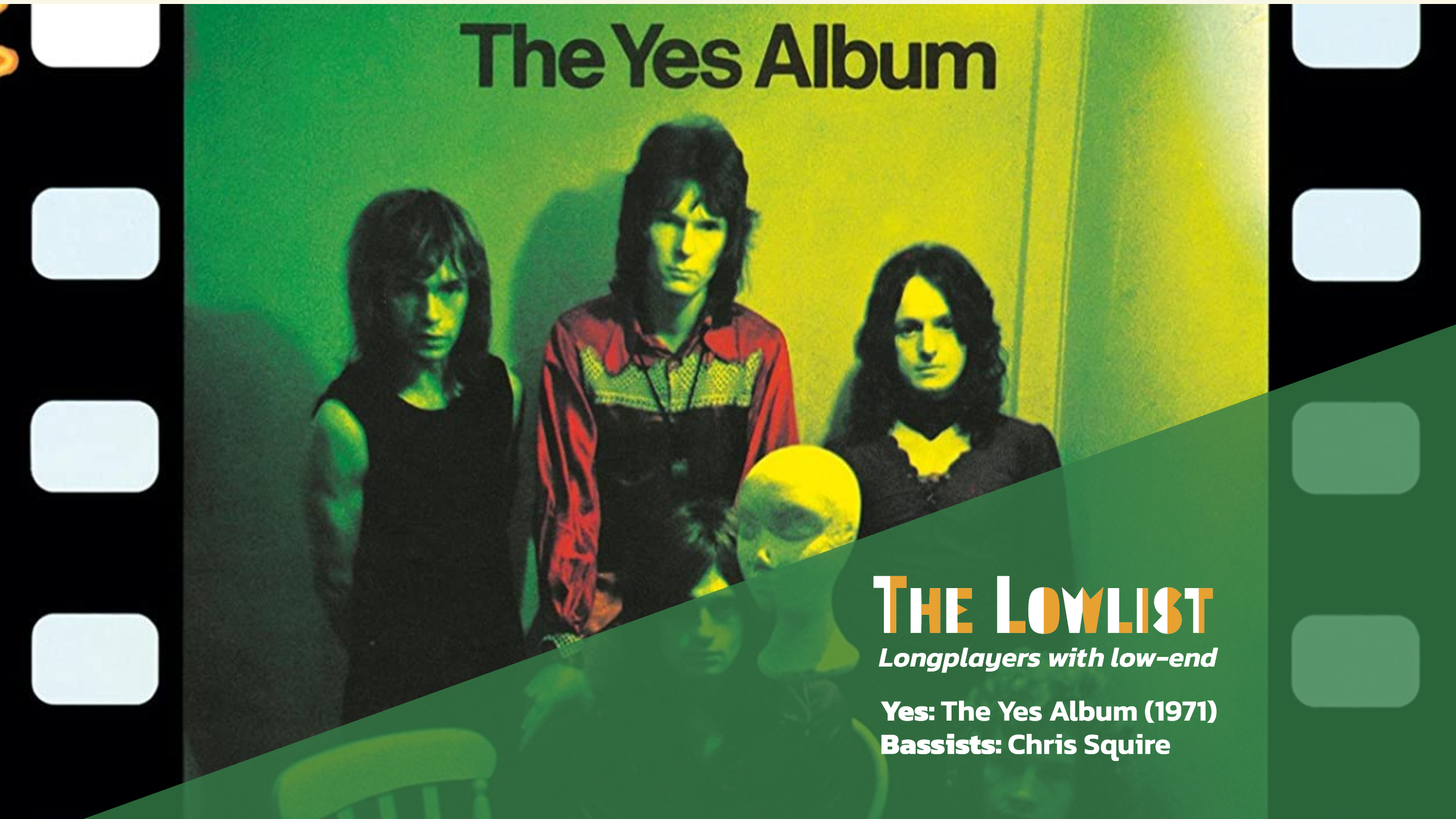The Yes Album: When Chris Squire created one of the most recognizable bass tones in rock
The Lowlist – celebrating longplayers with low-end – doffs its cap to Chris Squire

All the latest guitar news, interviews, lessons, reviews, deals and more, direct to your inbox!
You are now subscribed
Your newsletter sign-up was successful
The Yes Album (1971) started a run of releases for Yes that would see them go from prog-rock underachievers to multi-million selling arena superstars.
Now over 50 years old, at the time of its release, the band were facing the chop from Atlantic Records due to the poor performance of their first two albums, but their increasing live following meant that the album entered the charts, eventually reaching number four in the UK and number 40 in the US, before selling over a million copies in the US.
Bassist Chris Squire was building an enviable rhythm section with drummer Bill Bruford at this point, the fruits of which can be easily heard on this release. Chris recorded the album with his 1964 Rickenbacker RM1999 bass, strung with Rotosound Swing Bass steel roundwound strings, through a Marshall 100W head and 4x12 cabinets.
The album opener, Yours Is No Disgrace, clocks in at almost 10 minutes in length and is an early indication of where the band was heading, taking song segments and building them into a greater whole. The first two albums had shown traces of this way of working, but this track signifies a definite statement of intent. The signature tone which Chris coaxed from his Rickenbacker is all over this track: fat, raspy, with plenty of string grind, the combination of his pick playing with the Rotosound strings combining to create one of the most recognizable tones in rock.
The Clap is a showcase for the talents of the then-new guitarist Steve Howe, a song he wrote for his son by all accounts, recorded at the Lyceum Theatre in London in July 1970. Starship Trooper is a fan favorite, consisting of three distinct pieces, and features a tremolo effect on Chris’s bass part throughout Part A: Life Seeker, while Part C: Würm is a grinding progression and typical of Chris’s varied use of distorted bass tones, underpinning Steve Howe’s solo.
I’ve Seen All Good People is also made up of two distinct sections, Part A: Your Move and Part B: All Good People. The first part is a slow-building section in which Chris simply maintains the pulse of the song. The second section is a great example of his ability to move a piece forward, its walking line giving the rhythm a real swing.
A Venture was never played live until the 21st century when the album was played in its entirety: in 2014, Chris recalled that the band changed the arrangement for the album. When played live before the album sessions, the song had a more jazzy feel: from around two minutes in, the song takes on a more free-form style, Chris coming to the fore with a solo alongside Tony Kaye’s piano part.
All the latest guitar news, interviews, lessons, reviews, deals and more, direct to your inbox!
Perpetual Change features the perfect comparison of Chris’s clean and dirty tones. There are so many great bass moments here: this album started a run of output from Yes that would cement their place in musical history and go on to define a musical genre.
Chris Squire: we salute you.
The Yes Album is available to buy or stream

![Yes - Starship Trooper Live 1972 Yessongs [HD] - YouTube](https://img.youtube.com/vi/cXe2H0B7HTU/maxresdefault.jpg)

